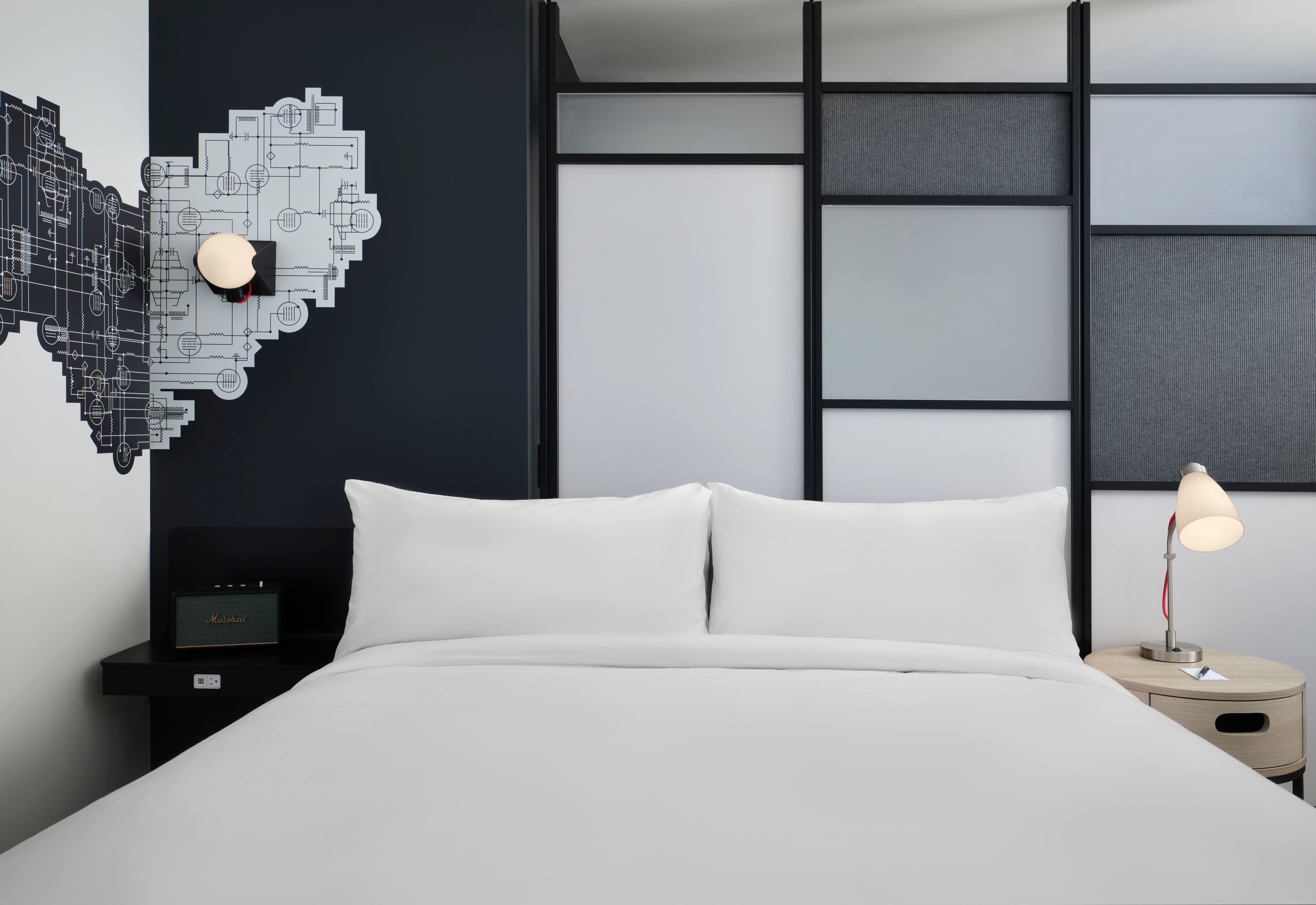Have questions? Reach out to our team to discuss specifics to your project.

It has been a wild ride since January 2025, when President Donald Trump brought tariffs back to center stage. To help hoteliers navigate these uncharted waters, here we briefly recap how tariffs on hospitality FF&E have changed over time, explain the impacts to hotel projects, anticipate what to expect going forward, and guide hoteliers on steps to take.
Tariff Policy Past & Present
Coming into the year, the most prominent US tariff was a 7.5% to 25% levy on a broad range of Chinese imports across various sectors. But in January, Trump began to discuss trade fairness, “reciprocal tariffs,” and how US exports to countries all over the world, especially China, carried larger tariff burdens than reciprocal imports from those countries to the US.
After announcing higher, country-specific reciprocal tariff rates on April 2nd, 2025, Trump provided some relief when he paused tariffs for 90 days on numerous trading partners willing to negotiate. A baseline 10% tariff on most imports did go into effect, which includes nearly all FF&E shipped into the US. But for products coming from China, in the absence of US-China negotiations, steep tariffs of 145% or more currently apply.
Tariff Effects on Hotel FF&E
Large retailers such as Home Depot, Target, and Walmart, with a huge volume of Chinese-made products, warned of broad negative impacts to US consumers. Within hospitality, a growing number of FF&E manufacturers over the past few years have been diversifying away from China. But many casegoods, lighting, and fabric products are still made in China. While those groups are facing 145%+ tariffs, a large number of casegoods producers in the US and other countries have no tariffs.
Through the United States-Mexico-Canada Agreement (USMCA), which replaced the North American Free Trade Agreement (NAFTA) in 2020, some seating and casegoods providers in neighboring countries enjoy zero tariffs. The rule of “substantial transformation” allows finished products with imported components to still be a product of the U.S.A. if they meet country of origin requirements.
With today’s tariffs and those that will apply after the 90-day pause driving up the total price of many imported goods, demand may increase for North American FF&E producers. If this happens, since increasing manufacturing capacity takes time, product lead times may expand. We saw something similar with COVID, but one positive that came out of the pandemic is that many manufacturers learned how to work smarter to handle rising volumes.

What to Expect Next
The most direct effect of reciprocal tariffs was to stimulate trade discussions with other countries, which are happening now. Once these negotiations are complete, we anticipate that tariffs on FF&E coming from most other countries will end up being more reasonable. However, the tariffs on Chinese goods are the most sensitive ones. Levies of 145% are unlikely to be permanent, but we foresee a much higher tariff on China than was in place before 2025.
We believe more hotel FF&E suppliers will begin or continue diversifying away from China. This, along with shifts in demand toward domestic producers resulting from tariffs, should increase US and other North American manufacturing of casegoods and additional FF&E product categories.
Steps Hoteliers Can Take to Minimize Tariff Impacts
As uncertainty around tariffs creates turbulence within hotel projects, hoteliers would be wise to select an experienced design and procurement partner with strong relationships across a strategic set of manufacturers. The right FF&E partner can usually provide options that can make a big difference in a hotel project.
With negotiations ongoing and policies fluid, Innvision remains vigilant with our trusted vendor partners who also understand this market. Innvision has built excellent, long-standing relationships with US manufacturers who enjoy zero tariffs and others who face low tariffs. Together, we can minimize hotel FF&E tariffs and product pricing for our clients.
We pride ourselves on our ultra hands-on approach, in which Innvision design and procurement consultants develop recommendations and options for our clients to make the best decision for each product category within each project. Contact us today to help you navigate the changing tariffs landscape to minimize or avoid negative impacts to your hotel projects.


